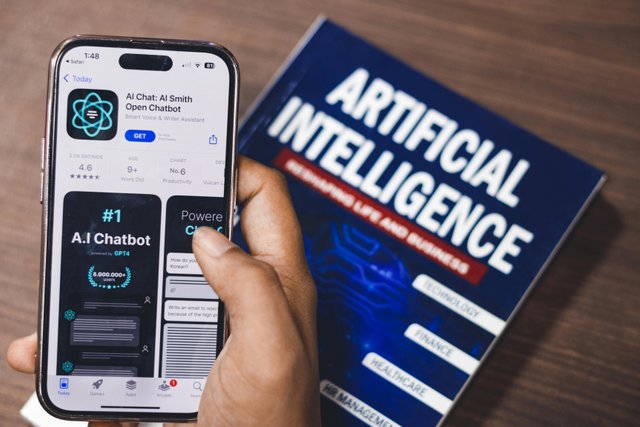Artificial Intelligence: Transforming the Future of Work and Society
Artificial Intelligence: Transforming the Future of Work and Society
Artificial Intelligence (AI) has emerged as a pivotal force, reshaping industries and redefining societal norms. As technology advances at an unprecedented pace, AI's impact on the world is a trending topic garnering global attention. From enhancing productivity in workplaces to revolutionizing healthcare and education, AI is not just a futuristic concept but a present-day reality.
The Rise of AI in Various Sectors
1. Healthcare:
AI's integration into healthcare has proven transformative. Machine learning algorithms can analyze vast amounts of medical data, leading to earlier diagnoses and personalized treatment plans. For instance, AI-powered imaging tools are now capable of detecting diseases like cancer at stages earlier than ever before, potentially saving countless lives.
2. Education:
In education, AI is personalizing learning experiences. Adaptive learning platforms use AI to tailor educational content to individual students' needs, helping to bridge gaps in understanding and cater to diverse learning styles. AI tutors provide additional support, ensuring that no student is left behind.
3. Business and Industry:
In the business world, AI is streamlining operations and driving efficiency. Predictive analytics help companies anticipate market trends and consumer behavior, enabling proactive decision-making. Automation of routine tasks frees up human workers to focus on more strategic initiatives, fostering innovation and creativity.
The Ethical Considerations of AI
While the benefits of AI are immense, its rapid advancement raises significant ethical questions. Concerns about job displacement, data privacy, and the potential for AI to perpetuate biases have sparked widespread debate.
1. Job Displacement:
The automation of jobs traditionally performed by humans has led to fears of mass unemployment. However, many experts argue that AI will create new job opportunities, requiring skills that did not previously exist. The challenge lies in reskilling the workforce to adapt to these new roles.
2. Data Privacy:
AI systems often rely on vast amounts of data, raising concerns about how this data is collected, stored, and used. Ensuring that AI technologies respect user privacy and comply with data protection regulations is crucial.
3. Bias and Fairness:
AI systems can inadvertently perpetuate existing biases present in their training data. This can lead to unfair outcomes in areas such as hiring, lending, and law enforcement. Developing AI that is transparent and accountable is essential to mitigate these risks.
The Future of AI
The future of AI holds exciting possibilities. Innovations such as self-driving cars, intelligent virtual assistants, and AI-driven climate change solutions are on the horizon. Collaboration between governments, industries, and academia is vital to ensure that AI development is ethical and benefits all of humanity.
In conclusion, AI is a powerful tool that has the potential to transform every aspect of our lives. As we navigate its challenges and harness its capabilities, the goal should be to create a future where AI enhances human potential and drives progress for all. The world is watching, and the conversation about AI's role in our society continues to be a dynamic and evolving one.
